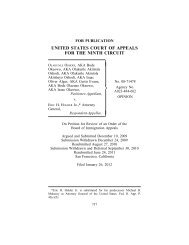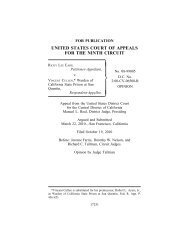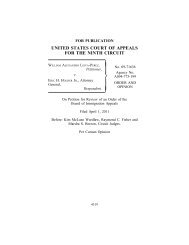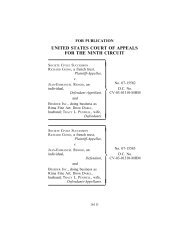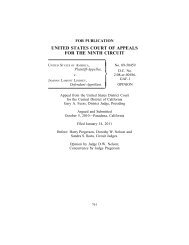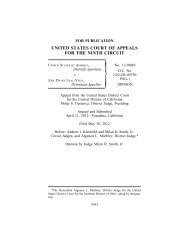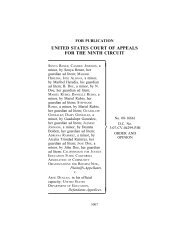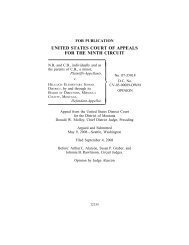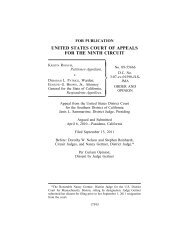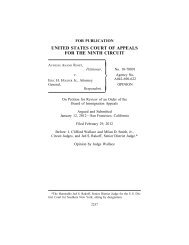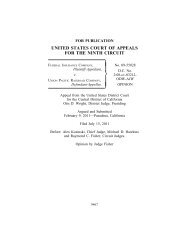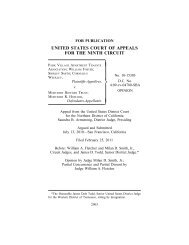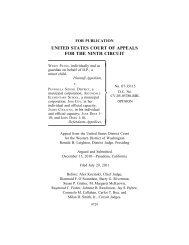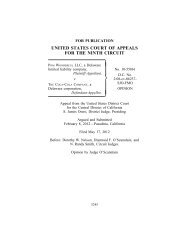USA v. Xavier Alvarez - Ninth Circuit Court of Appeals
USA v. Xavier Alvarez - Ninth Circuit Court of Appeals
USA v. Xavier Alvarez - Ninth Circuit Court of Appeals
You also want an ePaper? Increase the reach of your titles
YUMPU automatically turns print PDFs into web optimized ePapers that Google loves.
UNITED STATES v. ALVAREZ<br />
11867<br />
require a knowing violation. Indeed, the government charged<br />
<strong>Alvarez</strong> with knowingly making the false statement.<br />
But that is not enough. The <strong>Court</strong> has never held that a person<br />
can be liable for defamation merely for spreading knowingly<br />
false statements. The speech must also be “injurious to<br />
a private individual.” Gertz, 418 U.S. at 347.<br />
Of course, if we look beyond the text <strong>of</strong> the Act, there is<br />
a presumptive harm identified by Congress that might be<br />
analogized to the presumption <strong>of</strong> reputational harm made in<br />
defamation cases. Specifically, Congress made “Findings”<br />
that “fraudulent claims” about receipt <strong>of</strong> military honors<br />
“damage the reputation and meaning <strong>of</strong> such decorations and<br />
medals.” Stolen Valor Act <strong>of</strong> 2005, Pub. L. No. 109-437,<br />
§ 2(1), 120 Stat. at 3266; see also 151 Cong. Rec. S12684-01,<br />
S12688-99 (2005) (statement <strong>of</strong> Sen. Conrad). We do not<br />
believe the “Findings” make this a defamation statute.<br />
First, while the “Findings” identify the injury the Act targets,<br />
they do not actually limit the application <strong>of</strong> the Act.<br />
There is no requirement in the Act that the government bear<br />
the burden to prove that the defendant’s speech or writing<br />
proximately caused damage to the reputation and meaning <strong>of</strong><br />
military decorations and medals. Although common law traditions<br />
suggest that we can sometimes presume damage in defamation<br />
cases, see Gertz, 418 U.S. at 349-50, there is no<br />
readily apparent reason for assuming, without specific pro<strong>of</strong>,<br />
that the reputation and meaning <strong>of</strong> military decorations is<br />
harmed every time someone lies about having received one.<br />
To the contrary, the most obvious reason people lie about<br />
receiving military honors is because they believe that their<br />
being perceived as recipients <strong>of</strong> such honors brings them<br />
acclaim, suggesting that generally the integrity and reputation<br />
<strong>of</strong> such honors remain unimpaired. And notably, even in defamation<br />
cases, a “publication” is required, ensuring that liability<br />
attaches only to those falsehoods spoken under<br />
circumstances in which the harm could result. In this case,



